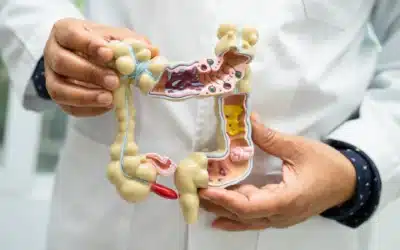Ketosis, a metabolic state induced by the ketogenic diet, has become a focal point in the realm of health and wellness. This diet, characterized by low carbohydrate intake and high-fat consumption, propels the body into a state where it burns fat for fuel instead of glucose. This shift not only aids in effective weight loss but also brings about profound changes in metabolic function.
In this article, we delve into the science behind ketosis, unraveling how this process works and its transformative effects on the body’s metabolism. By understanding the mechanisms of ketosis, we gain insights into why the keto diet has gained popularity for its ability to reshape the way our body processes energy, potentially leading to improved health outcomes.
From its historical roots as a treatment for epilepsy to its contemporary status as a popular dietary choice, ketosis represents a fascinating intersection of nutrition and metabolism. As we explore the keto diet’s impact on metabolic processes, we will also address the benefits, challenges, and considerations that come with this unique dietary approach.
Join us as we explore the intricate science of ketosis and how it holds the key to transforming metabolism and, by extension, our overall health and well-being.
Understanding Ketosis
At the heart of the ketogenic diet is a process known as ketosis, a metabolic state that has profound effects on the body. Understanding this process is key to comprehending how the keto diet transforms metabolism.
What is Ketosis?
Ketosis is a metabolic state where the body, due to the lack of sufficient carbohydrates, shifts to burning fats for fuel. In the absence of glucose, which is the body’s usual source of energy, the liver converts fatty acids into molecules known as ketones, which then serve as an alternative energy source.
The Process of Entering Ketosis
Entering ketosis involves significantly reducing carbohydrate intake, usually to about 20 to 50 grams per day. This depletion of carbohydrates shifts the body’s energy reliance from glucose to ketones. The transition to ketosis typically takes a few days to a week, during which the body adjusts to burning fat more efficiently.
Effects on Metabolism
Ketosis has a transformative effect on metabolism. Instead of relying on the quick-burning energy of glucose, the body begins to utilize the more sustained energy from fats. This change can lead to several benefits:
- Enhanced Fat Burning: With ketosis, the body becomes more efficient at burning stored fat for energy, which can lead to weight loss.
- Stable Blood Sugar Levels: By reducing carbohydrate intake, ketosis leads to more stable blood sugar levels, which can be beneficial for individuals with diabetes or insulin resistance.
- Increased Mental Clarity: Many people report improved focus and mental clarity when in ketosis, likely due to the steady supply of energy to the brain in the form of ketones.

Ketones: The Energy Alternative
Ketones, primarily beta-hydroxybutyrate (BHB), acetoacetate, and acetone become the primary energy source for the body and brain. These molecules are a more efficient fuel and produce fewer reactive oxygen species (ROS), potentially leading to reduced inflammation and oxidative stress.
In summary, ketosis fundamentally changes how the body’s metabolism functions, shifting from a carb-dependent state to one that efficiently utilizes fats. This process not only supports weight loss and improved energy levels but also contributes to overall metabolic health.
The Keto Diet and Metabolic Transformation
The ketogenic diet is more than just a low-carb eating plan; it’s a catalyst for profound metabolic transformation. By inducing ketosis, the keto diet reshapes the way our body processes energy, leading to significant changes in metabolism.
Inducing Ketosis Through Diet
The primary mechanism behind the keto diet is its ability to induce ketosis:
- Low Carbohydrate Intake: Limiting carbs to about 20 to 50 grams per day forces the body to look for alternative energy sources.
- High Fat Intake: Consuming a diet high in fats (around 70-80% of total calories) encourages the liver to produce ketones from stored fats.
Metabolic Shifts
As the body enters ketosis, several key metabolic shifts occur:
- From Glucose to Ketones: The body transitions from relying on glucose derived from carbohydrates to using ketones derived from fats as its primary energy source.
- Enhanced Fat Oxidation: The body becomes more efficient at breaking down and utilizing fat for energy, which can lead to reduced fat stores and weight loss.
- Altered Insulin Dynamics: Reduced carbohydrate intake leads to lower and more stable insulin levels, improving insulin sensitivity and potentially benefiting conditions like type 2 diabetes.
Impact on Cellular Metabolism
Ketosis also influences cellular metabolism:
- Increased Mitochondrial Biogenesis: The shift to fat as a primary energy source can lead to the creation of new mitochondria, the energy powerhouses of cells.
- Reduced Inflammation and Oxidative Stress: Ketones have anti-inflammatory properties and can reduce oxidative stress, contributing to improved overall health.
Long-Term Metabolic Effects
The long-term effects of a ketogenic diet on metabolism can include sustained weight loss, improved energy levels, enhanced mental clarity, and a reduced risk of chronic diseases.
In summary, the ketogenic diet’s induction of ketosis leads to a comprehensive metabolic overhaul. This transformation extends beyond weight loss, impacting energy production, hormonal balance, and overall cellular health, offering a unique approach to improving metabolic function.
Benefits of Ketosis in Metabolism
Ketosis, triggered by the ketogenic diet, offers several metabolic benefits that contribute to both physical and mental health. Understanding these benefits can help in appreciating the full potential of this dietary approach.

Enhanced Fat Burning and Weight Loss
One of the most immediate effects of ketosis is enhanced fat burning:
- Efficient Fat Utilization: The body becomes adept at using stored fat for energy, leading to more effective weight loss.
- Reduced Appetite: Ketones have an appetite-suppressing effect, helping to reduce calorie intake without the discomfort of hunger.
Stabilized Blood Sugar Levels
Ketosis leads to lower and more stable blood sugar levels:
- Reduced Glycemic Variability: Low carbohydrate intake minimizes blood sugar spikes, beneficial for individuals with diabetes or insulin resistance.
- Improved Insulin Sensitivity: A consistent state of ketosis can improve insulin sensitivity over time.
Cognitive Benefits
Many individuals in ketosis report enhanced mental performance:
- Improved Focus and Clarity: Ketones provide a steady source of energy to the brain, which may enhance cognitive functions like focus and clarity.
- Potential Neuroprotective Effects: Emerging research suggests that ketones may have neuroprotective properties, potentially beneficial in neurodegenerative diseases.
Increased Energy and Endurance
Ketosis can lead to a more consistent energy supply:
- Sustained Energy: Unlike the quick spikes from glucose, ketone bodies provide a longer-lasting energy source.
- Enhanced Physical Endurance: Athletes in ketosis often experience improved endurance and performance.
Improved Metabolic Health
Long-term adherence to a ketogenic diet can lead to improved overall metabolic health:
- Lowered Risk Factors for Chronic Diseases: Improvements in lipid profiles and blood pressure can reduce the risk of heart disease.
- Anti-Inflammatory Effects: Ketosis can reduce systemic inflammation, potentially lowering the risk of various chronic conditions.
In summary, ketosis offers a range of metabolic benefits beyond weight loss. Its impact on fat burning, blood sugar regulation, mental performance, and overall health makes it a compelling dietary approach for those looking to improve their metabolic health.
Challenges and Considerations
While the benefits of ketosis are significant, it’s important to be aware of the challenges and considerations associated with the ketogenic diet.
Dietary Restrictions and Sustainability
- Limited Food Choices: The strict carbohydrate limit can make the keto diet challenging to sustain long-term for some people.
- Social and Lifestyle Adjustments: Adhering to the keto diet can require significant changes in social eating habits and lifestyle choices.
Nutritional Deficiencies
- Risk of Nutrient Deficiencies: Limited intake of fruits, certain vegetables, and whole grains can lead to deficiencies in essential vitamins and minerals.
- Supplementation: It may be necessary to supplement nutrients like fiber, magnesium, and certain vitamins to maintain balanced nutrition.
Keto Flu and Transition Challenges
- Keto Flu: As the body adapts to ketosis, some individuals experience flu-like symptoms, such as fatigue, headaches, and irritability.
- Adaptation Period: The initial weeks of the diet can be challenging as the body transitions from glucose to fat metabolism.
Impact on Athletic Performance
- Short-term Performance Decline: Some athletes may experience a temporary decline in performance as their bodies adapt to using fat for fuel.
- Individual Variability: The impact of ketosis on exercise performance can vary greatly between individuals.
Monitoring and Adjustment
- Regular Monitoring: It’s important to monitor health markers and adjust the diet as needed to ensure overall health and well-being.
- Consultation with Healthcare Professionals: Before starting a ketogenic diet, especially for individuals with pre-existing health conditions, consulting with healthcare professionals is advisable.
In conclusion, while ketosis can offer numerous health benefits, it’s crucial to approach the ketogenic diet with a balanced perspective, considering its potential challenges and nutritional implications. Awareness and careful planning can help mitigate these challenges, making the keto journey more sustainable and effective.
The Keto diet offers a scientifically proven method to shed excess body fat while enjoying delicious, satisfying meals. Thanks to its focus on high-fat, low-carb eating, the diet increases energy levels, improves mental clarity, and a more stable appetite.
Conclusion: Embracing the Transformative Power of Ketosis
Through our exploration of ketosis and the ketogenic diet, we’ve uncovered the significant impact this metabolic state has on our body’s energy utilization, health, and overall well-being. Ketosis, a byproduct of the ketogenic diet, is not just about weight loss; it represents a fundamental shift in how our bodies process and use energy.
This metabolic transformation brings with it numerous benefits, including enhanced fat burning, improved blood sugar control, increased mental clarity, and potentially even neuroprotective effects. However, it’s important to approach ketosis with an understanding of the challenges it may present, such as dietary restrictions, the adaptation period, and the need for careful nutritional planning.
The ketogenic diet and the state of ketosis remind us of the powerful connection between diet and metabolism. It underscores the idea that how we fuel our bodies can have profound effects on our health, performance, and quality of life. Whether you’re considering the keto diet for weight loss, health improvement, or enhanced athletic performance, understanding the science behind ketosis is crucial for maximizing its benefits and navigating its challenges.
As we conclude, remember that individual experiences with ketosis can vary. It’s essential to listen to your body and consult with healthcare professionals to tailor the diet to your specific needs and goals. Embracing the transformative power of ketosis can be a journey towards not just a different way of eating, but a new way of living.



















